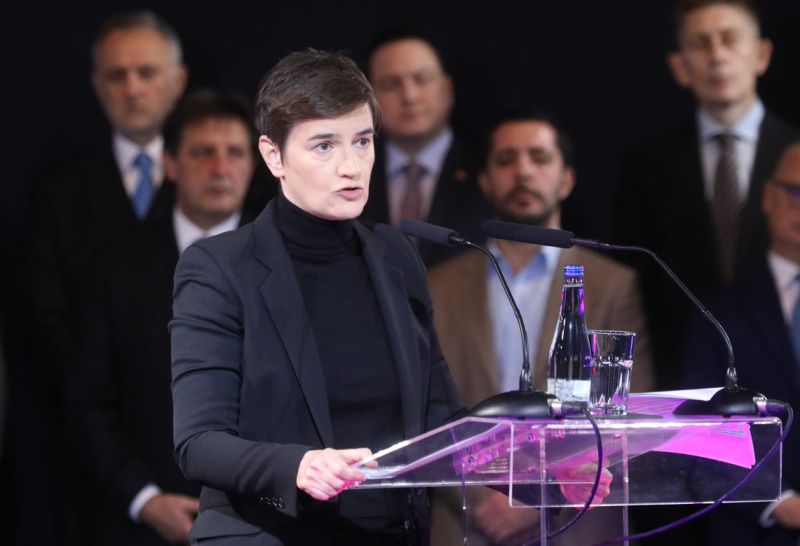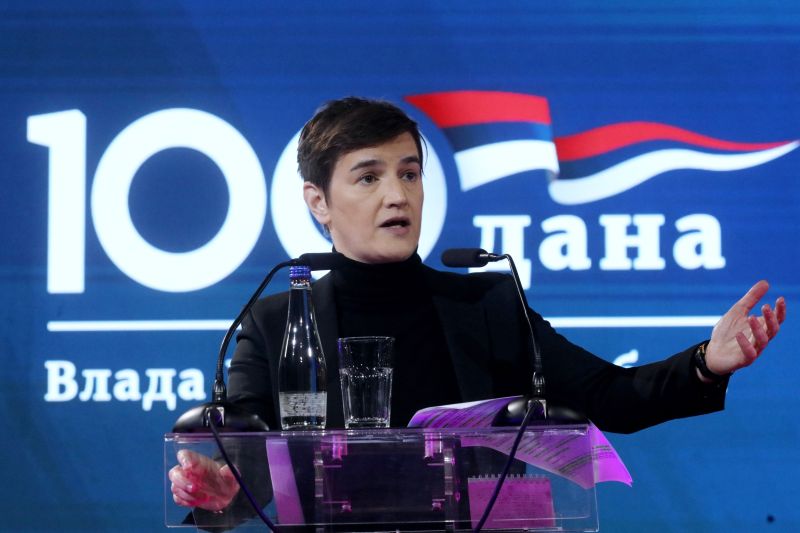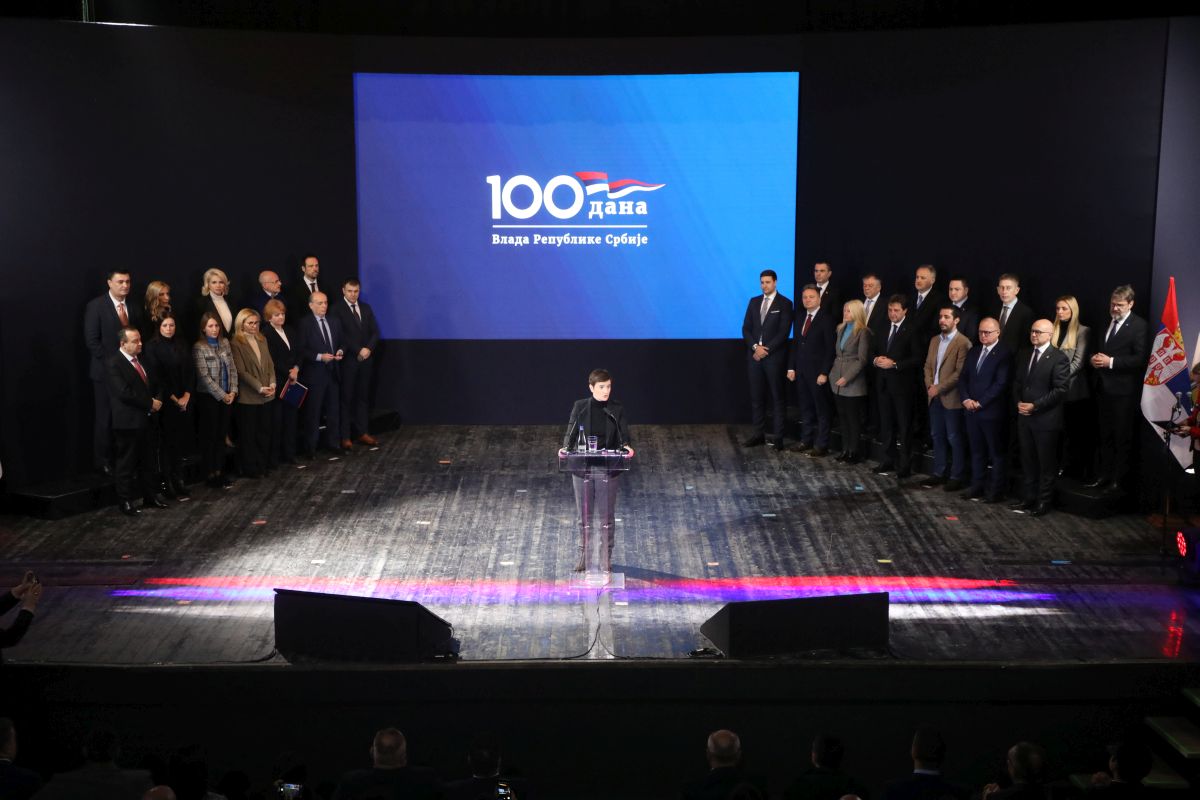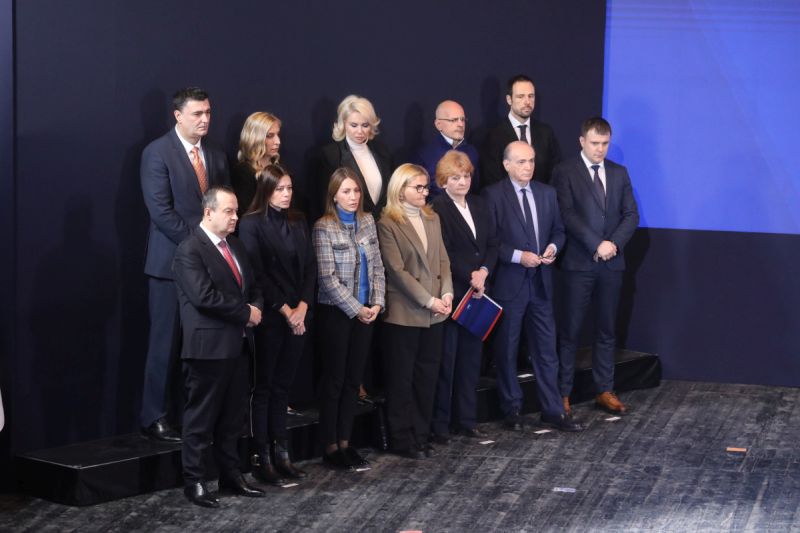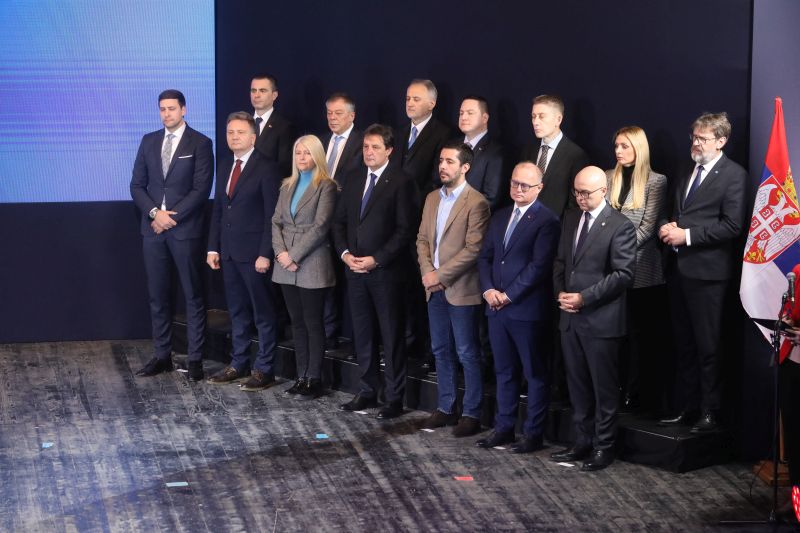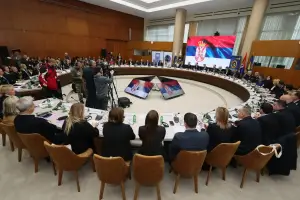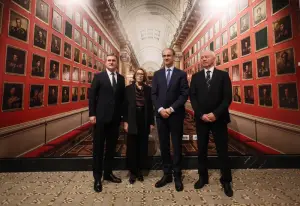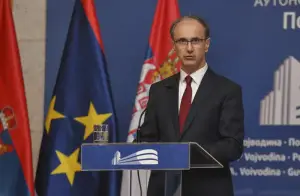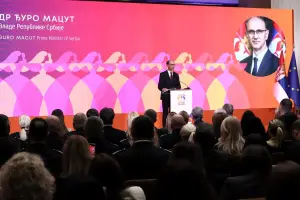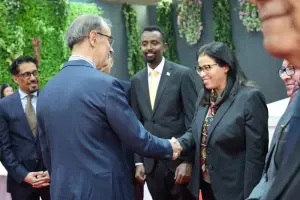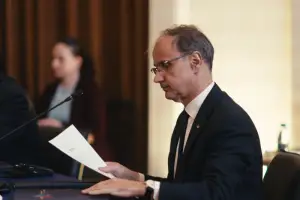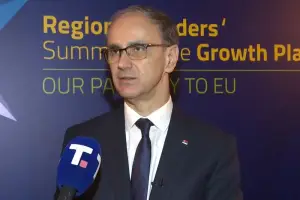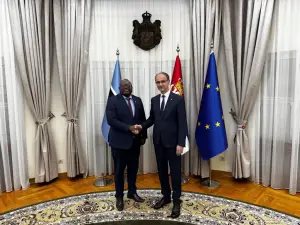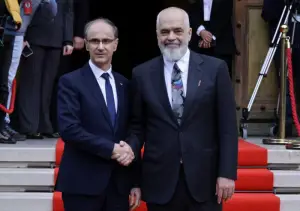Prime Minister Ana Brnabic stated today that the first 100 days of work of the government of Serbia were marked by four major segments that related to the budget, energy, the rule of law and constant instability and provocations in Kosovo and Metohija.
Four major segments mark first 100 days of government’s work
Presenting the achieved results, Brnabic pointed out that our budget is developmental, despite all the challenges we and the world are facing, and that further growth and development of Serbia as well as living standards and investments depend on it.
She stated as the main message that during the mandate of this government, stability was achieved in terms of continuous growth of salaries and pensions, support for the most vulnerable part of the population, further investments and growth.
According to her, Serbia has a stable state treasury, where the deficit at the end of 2022 was 3.3 percent of GDP, and the public debt was 55.2 percent of GDP, which is still decreasing.
The budget ensured further improvement of the standard of living, increase of wages and pensions. We will have accurate data for salaries in the public sector on 25 February, but right now we know that we ended the year with average salaries of about €710-720, and they are 115 percent higher than 10 years ago, the Prime Minister stressed.
She reminded that salaries in the public sector were increased by 12.5 percent on 1 January, and by 25 percent in the army, while pensions were increased by a total of 20.8 percent in November and January, which means that the average pension in 2023 will amount to approximately €320.
Also, as she added, the minimum wage was increased by 14.3 percent and now amounts to slightly more than RSD 40,000.
We want to see how we can help the most vulnerable parts of the population to live with dignity and have a dignified income for their work, the Prime Minister said.
She confirmed that the state treasury is stable, and the GDP for 2022 amounted to €60.3 billion, which is a record GDP, and added that the deficit at the end of 2022 was 3.3 percent of GDP, and the public debt 55.2 percent of GDP with a downward trend.
In this context, Brnabic explained that on 25 January, a debt of RSD 100 billion was repaid, which reduced the share of public debt already in January.
In the last year, growth was achieved that was not as planned because, as she stated, at the end of 2021, when projections for growth were made, no one expected a war in Eastern Europe.
We achieved a growth of between 2.3 and 2.5 percent, and despite all the difficulties we had, €4.4 billion of foreign investments, the Prime Minister said and pointed out that in the first 100 days of work, the government focused on further attracting foreign investments as they guarantee the continuous growth of salaries and pensions.
In this regard, she noted that a strategic partner was found for Staklo Paracin, an IBM office and research and development centre was opened in Novi Sad, the Japanese company Japan Tobacco International (JTI) in Senta announced a new investment cycle in Serbia.
She added that the agreements with a Swiss pharmaceutical company and the Japanese Takeda provide the basis for one of the most important strategic projects, namely the Bio 4 campus.
According to her, 2023 will be an important year for road infrastructure, since the highway to Pozega, the highway to Krusevac and many other projects are planned to be completed.
She also pointed out that the Youth Strategy until 2030 was adopted and that 9,400 young people were included in the 3rd cycle of “My First Salary Programme”, and emphasised the importance of forming the National Sports Council, which will deal with research and analysis in that area.
The Prime Minister also said that the introduction of high-speed internet in rural areas continued, and that it will be completed by 2025, recalling that Serbia became a member of the global partnership for artificial intelligence as one of 29 countries.
Speaking about healthcare, the Prime Minister stated that vaccines against new strains of the coronavirus were additionally provided, that financing the works on several health centres amounted to €2 million, as well as that biomedically assisted insemination has started in Serbia, with currently more than 500 requests.
Brnabic assessed that the Open Balkans is the most important regional initiative in decades, adding that Serbia, Albania and North Macedonia will continue to discuss what can be done together to create a better environment for new investments.
We expect to start with the Open Balkans initiative with personal ID numbers for citizens of Serbia, North Macedonia and Albania, as well as the opening of a special lane at border crossings only for our citizens and our transport, Brnabic said.
The Prime Minister stated that the ratification of the agreement within the framework of the Open Balkans is expected in the parliament of North Macedonia, explaining that with cards with an ID number, citizens will be able to travel, work, study and receive treatment in all three countries as if they were citizens.
Speaking about energy as one of the four main segments in the government’s focus in the first 100 days, the Prime Minister emphasised that Serbia, despite the energy crisis and problems at the global level, managed to ensure energy stability.
Our country has not felt the energy crisis, she pointed out and specified that EPS, which exported 143 gigawatt hours of electricity in December and January, has been stabilised, while oil and derivatives reserves have increased by 54 percent compared to 2021.
The prices of electricity and gas in Serbia are still among the lowest, Brnabic noted and stated that the state has preserved the standard of citizens and protected the competitiveness of our economy with subsidised prices.
The Prime Minister expressed her gratitude to the citizens because the stimulus measures gave excellent results, adding that in October we saved 15% of electricity consumption compared to 2021, 7% in November and 9.4% in December, which means that electricity savings amounted to €67 million.

